Vision insurance fills the gap left by traditional health insurance and Medicare when it comes to vision-related products and services.
Vision insurance typically covers things such as annual eye exams, which other forms of insurance don’t address. It is also one of the most affordable types of health insurance you can buy, often costing less than a dollar a day.
Our panel of health and wellness experts have determined that the following companies offer the best vision insurance options for 2023.
Rankings
1. United Healthcare

With United Healthcare, you have the option of purchasing stand-alone vision or bundling it with a dental insurance policy. The vision insurance itself, however, is well worth the investment: low co-pays, modest premiums, and a vast network.
What we like: The $10 co-pay for in-network eye exams is hard to beat. We like that they don’t deny coverage based on age like some other companies. And there’s no waiting period on some of the basic services. We like that a lot.
Flaws: The in-network frame allowance is surprisingly modest. Whether they actually cover Lasik is also open to debate.
2. Anthem Blue

The vision insurance plans offered by Anthem are simple and (relatively) affordable. You don’t need to be an actuary to understand what’s covered and for how much. And you’ll enjoy widespread acceptance due to the BCBS tie-in.
What we like: It’s Blue Cross, Blue Shield. The premier American healthcare brand. We like that if you have BCBS health coverage, you can link the vision coverage with it. And despite the brand name panache premiums are down to earth.
Flaws: They’re an arm of the huge Blue Cross healthcare network. So don’t expect personalized service.
3. VSP Individual Vision Plans
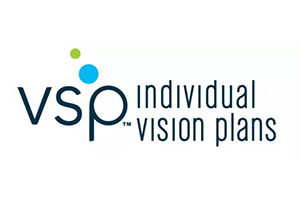
Where some companies offer 1 or 2 plans, VSP offers a wide array of vision insurance plans to fulfill every need. There are individual, family, and business plans and plans specifically for seniors. They’ll also allow you to make changes.
What we like: The VSP network is among the largest in the nation. We like the low co-payments and how easy it is to work with the company. We also like that they allow you to change plans within the first 30 days as long as you haven’t filed any claims.
Flaws: Benefits drop considerably when you go out of network. The premiums are also some of the highest we found.
4. Direct Vision Insurance
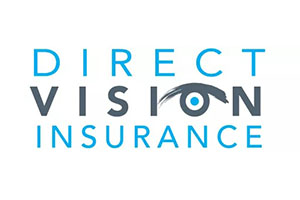
Direct Vision is a clearinghouse of sorts for insurance providers. If you find the process of searching for good vision insurance to be a bit like pulling teeth, they can simplify it. Although you may still end up a bit confused about who they are.
What we like: It’s nice that they have actual walk-in service centers if you want to talk to someone. Enrollment fees are reasonable. And you can choose to purchase a plan integrated with your healthcare insurance network or go independent.
Flaws: The basic plan only allows for an eye exam every two years. Taking advantage of some benefits can be a confusing process.
5. EyeMed Vision Insurance
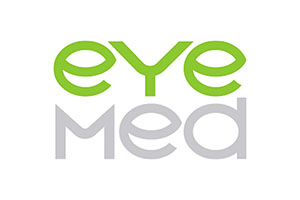
EyeMed’s network of more than 40,000 participating eyecare professionals is one of the biggest around. Their vision insurance plans are relatively simple and quite affordable and will cover you for annual eye exams, glasses, and more.
What we like: We like how easy it is to get a fast, accurate quote through their online app. The network is extensive and covers the entire US. And we appreciate having a choice of three vision care plans.
Flaws: Their Lasik ‘savings’ are nothing to write home about. And the frame allowance is one of the smallest you’ll find among the big players.
6. Davis Vision
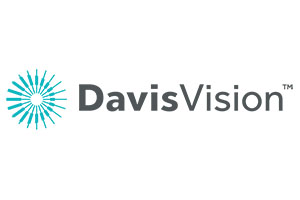
Davis Vision features a network of more than 70,000 vision professionals in the lower 48 states. They also offer a range of other programs designed to help those with diabetes-related eye problems, hearing problems, and more.
What we like: We’re impressed by the sheer number of providers (70,000 nationwide) that make up their network. Being able to submit your claim via a smartphone app is also a plus. Premiums are reasonable, and you can even get discounts on hearing aids.
Flaws: The fact that you can’t buy Lasik coverage even if you want. Also, they try and steer you toward their proprietary frames.
7. EyeBenefits
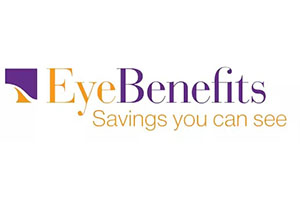
EyeBenefits runs a group discount scheme that offers pretty substantial savings on various eyecare-related products and services. You pay a single yearly membership fee, and there’s no limit on how often you can use the discounts they offer.
What we like: Although it’s a group discount scheme, we appreciate that you can still obtain significant savings on vision services. We also appreciate that they cover Lasik and that membership fees are fairly reasonable.
Flaws: Because it is a discount scheme and not a true insurance company, the network is relatively small.
8. Ameritas

Ameritas works with vision insurance providers EyeMed and VSP. They offer a single, simple vision insurance plan from each of these providers. The EyeMed plan is the more basic of the two, while the VSP plan provides for things like new glasses once a year.
What we like: We appreciate the low premiums and the ability to choose between two plans as suits your needs. We like that we can choose to bundle vision with dental. And dealing with the company is a pretty straightforward experience.
Flaws: Dealing with the humans associated with Ameritas is easy. Dealing with the website is another matter. Also, they don’t specialize in vision insurance.
9. Spirit Dental and Vision

Whether you need vision and dental insurance or just dental Spirit has an affordable plan for you. These plans are simple and straightforward, with reasonable co-pays and minimal bureaucratic muss and fuss.
What we like: We like that they offer plans customized to the needs of seniors. That there is little or no waiting for some of the services. And we appreciate that co-payments are very modest for standard services. Helpful customer service as well.
Flaws: We’re not crazy about the fact that to get vision you must also get dental coverage. It would be nice to have a choice.
10. Humana Vision Insurance
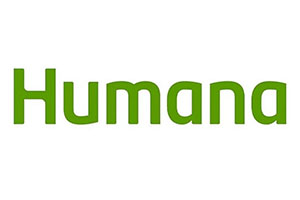
Humana is one of the largest providers of health insurance in the US. They cover every conceivable aspect of healthcare, including vision. Their premiums are some of the best of any large insurer, and they also offer a Medicare Advantage option.
What we like: Premiums for Humana Vision are quite reasonable. They offer one of the highest allowances you’ll find for frames. Their network is extensive, and we appreciate that they offer plans tailored specifically to older individuals.
Flaws: The $40 co-pay for in-network eye exams seems a bit steep. Also, in-network is your only choice. There is no wandering off the farm.
Who Needs Vision Insurance?
In a very real sense, everyone that doesn’t currently have vision insurance needs vision insurance. There is no logical argument you can make to support the notion that someone who can afford it shouldn’t purchase insurance to protect their sense of sight. The only ones who may not need it are the very wealthy. And if that describes you then congratulations.
But if we drill down a bit to find specific groups that would benefit the most, we would include people with naturally poor vision. We would also include those with a history of eye disease in the family. Diabetics are another group that should have vision insurance since that malady can be very tough on the eyes.
And, of course, elderly individuals should have vision insurance if they can afford it. Simply because aging goes hand in hand with a slew of vision problems (1). And the more effectively an older individual can keep on top of vision problems, the better their chances of not surrendering their eyesight.
How We Ranked
Anytime we’re talking about insurance, two considerations dwarf all others: cost and benefits. And that is certainly the case when it comes to vision insurance as well. So when vetting vision insurance plans for our list, we kept those two considerations front and center. All had to offer some degree of coverage for eye exams, for example. And the more, the better. And they should also provide some type of coverage for things standard insurance doesn’t, like eyeglasses and/or contacts.
But those aren’t the only things to consider when shopping for vision insurance. If you find a policy that is reasonably priced and offers a reasonable number of benefits for the price, then you’ll want to look at secondary considerations like network size. Essentially, the more extensive the network, the greater the chances you’ll be able to find someone near to where you live. That’s particularly important for older individuals. So all the plans that made our list have large networks.
Another consideration is how easy it is to understand the policy. It often seems like some companies have accountants from the Byzantine Empire on the payroll to draw up their plans. Trying to figure out what you’re covered for and what you’re not covered for can be a headache-inducing enterprise. So the clearer the plan, the better. Also, being able to process a claim through an app can be a big plus.
Lastly, we considered customer service. Because insurance policies and claims can be extremely confusing, it’s vital the company is there to help if you need them. And it’s also important that they’re friendly and patient and help you find solutions instead of just passing you around.
FAQs
Q: What is vision insurance?
A: Vision insurance is a type of health insurance that provides coverage for eye-related expenses most standard health insurance policies won’t cover. Like dental insurance, it’s a type of specialty insurance. Only in this case, it addresses the specific costs related to maintaining good vision. Vision insurance typically covers things like eye exams that standard health insurance and Medicare won’t cover. It will also cover diagnosis of various vision problems like astigmatism and may also cover part or all of the cost of Lasik surgery (2).
Q: Is a vision insurance plan worth the money?
A: Only you can decide if vision insurance is worth the investment. But if you are simply talking from an ROI perspective, then yes, vision insurance is typically worth the money. As long as you make the most of what it offers. But if you purchase a vision insurance plan and then never go for eye exams, never buy new glasses or contacts or never take advantage of any of the other benefits it offers, then no. It’s probably not worth it.
Q: I have perfect vision. Why do I need to bother with eye exams?
A: Because an eye exam can tell more about you than whether you need glasses. The eye exam may also reveal signs of high blood pressure, diabetes, or other health problems. Yes, the doctor can tell all that and more from just looking into your eyes. So even if you don’t need glasses, you may discover you need another type of medical attention. Getting this kind of heads up can enable you to seek treatment before things get out of control.
Q: Will vision insurance cover designer frames?
A: When it comes to frames, the amount different vision plans cover will vary widely. Some will reimburse up to $250, while others will only give you a small discount on the total cost. So if you’re hoping your vision insurance will cover the entire cost of those $500 Italian designer frames, you’re probably out of luck.
Q: How often should I have an eye exam?
A: The consensus among eyecare professionals is that you should have an eye exam every year. Sometimes more often, if you have specific issues or if you’ve had eye surgery in the past. The reason for having an annual eye exam is to enable you to catch any problems before they grow into issues that could threaten your eyesight.
Q: Why are eye exams important?
A: The modern world presents threats to human vision that simply didn’t exist in the days of our ancestors. We need to be visually alert often for hours at a time as we hurtle down the highway at high speed in our cars. Video games strain young people’s eyesight (3). And millions of us now spend our entire working life staring at computer screens. The eye simply wasn’t designed for this, which is why it’s crucial to have regular eye exams.
Q: Does vision insurance cover lasik surgery?
A: Some vision insurance plans offer complete coverage for Lasik surgery. Most, however, require you to cover some of the costs. Some group discount schemes enable you to obtain a 30 – 35% discount on the procedure if you go to specific hospitals and use specific eye surgeons. But some vision insurance plans simply don’t cover it at all. Make sure you read the fine print regarding Lasik if this is important to you.
Q: Will vision insurance allow me to see my own eye doctor?
A: In the vast majority of cases, vision insurance plans require you to see an in-network eye doctor to enjoy full benefits. Now, if your regular eye doctor also happens to be a member of the network associated with your new plan, you’re in luck. But if they’re not and you continue to see them, the insurance will only cover a small percentage of the cost. You should ask them if they’re a member of any network before choosing a plan. They may well be.
Q: How do I find an in-network eye doctor?
A: Thanks to the internet and the smartphone app finding an in-network eye doctor for most of these plans is fast and simple. In most cases, you just go to the company’s website or download and open their smartphone app then enter your zip code. In seconds you’ll have a list of in-network eye care professionals near you. After that, it’s up to you to choose the one you think will serve you best.
Q: Are all vision insurance plans limited in scope?
A: Not at all. Some will cover everything from regular eye exams to Lasik surgery and expensive contacts. They’ll also help out with the cost of certain types of eye surgery and help defray the costs of treating things like cataracts (4), macular degeneration (5), diabetic retinopathy (6) and more. Of course, the more benefits a plan provides the more it is likely to cost. So like everything else it’s largely a matter of getting what you pay for.
Q: Will vision insurance cover both glasses and contacts?
A: Whether or not a vision insurance plan covers glasses and contacts depends entirely on the plan. Some will only cover glasses. Some will only cover contacts. Some will provide limited coverage for both. And still others won’t offer coverage for either. This is the kind of detail you’ll want to nail down before you decide to spend your hard-earned money on a vision insurance plan.
Q: Why is there a waiting period for coverage?
A: People are often surprised to discover that they will have to wait two or perhaps even three years before they can use all components of a vision insurance policy. They think they’re being ripped off. But insurance companies do it to protect themselves. The waiting period prevents people who have just discovered a vision problem from running out to get coverage. Without the waiting period, companies couldn’t afford to offer vision insurance.
Q: How much does vision insurance for seniors cost?
A: There is no simple answer to this question. It will depend on the individual, the company they purchase the vision coverage from, and the specific vision insurance plan they sign on for. There are also two different kinds of coverage: benefits coverage and group discount plans. Benefits coverage tends to cost a bit more but also pays a larger portion of expenses. Group discounts are cheaper but ask you to pony up a larger amount for services.
Q: Can I get vision insurance if I don’t have regular health insurance?
A: Yes, you can get vision insurance even if you don’t have standard health insurance. Vision insurance is an entirely separate animal from regular health insurance. As such, the willingness of a company to offer you vision insurance is not dependent on you having health insurance. Some companies offer combination plans that will cover both vision and dental. So even if you don’t have health insurance, those two vital things will be covered.
Q: Can I get vision insurance if I have a pre-existing condition?
A: The good news is that, unlike with most standard health insurance plans, you will find a number of companies are willing to provide vision insurance even if you have a pre-existing condition. But there is a caveat. While they will be willing to offer you vision insurance, they typically will not provide coverage for treatment of that pre-existing condition.
Q: Are vision-related medical expenses covered by Medicare?
A: Vision-related expenses for the most part are not covered by standard Medicare. However, you may obtain coverage for some eyecare-related expenses such as an annual glaucoma test (7) via Medicare Part B (8). That said, neither Medicare plan will cover eye exams, glasses or contacts. You may be able to find a Medicare Advantage (9) plan that will offer some basic eye exam coverage. Though most don’t.
Q: Will vision insurance cover contact lenses?
A: In some cases, yes. In other cases, no. It all depends on the details of your vision insurance plan. In the case of those plans that do offer coverage, some will make you choose between either glasses or contacts, but won’t cover both. Group discount plans will often offer a discount on contacts and glasses. But that’s a discount, not total coverage. Always read the fine print of a policy before signing on.
Q: Doesn’t my regular insurance cover eye exams?
A: In most cases even the most comprehensive medical insurance doesn’t cover eye exams, glasses, contacts or other types of eye care. What it will cover is emergency room visits (say if someone had an accident that involved their eyes), an office visit to treat an eye infection, and some types of eye surgery. Likewise, if during an eye exam, the doctor finds something that needs attention, it will be a matter for medical insurance. Not vision insurance.
Q: Doesn’t Obamacare cover eye exams?
A: The Affordable Care Act (ACA) – commonly referred to as Obamacare – mandates that any plans in the Health Insurance Marketplace must offer eye care coverage for children. However, there is nothing in the wording of the ACA that mandates insurers to provide even basic eye care coverage for adults. Also, with the future of the ACA very much in doubt (10) relying on it to cover yours or your child’s eye care needs going forward is unwise.
Related Articles
Recap
Vision insurance can make the difference between a lifetime of good eyesight and a slow descent into worsening vision problems. Vision insurance is one of the most affordable but meaningful types of insurance you can buy. And that’s the case whether you’re 18 or 80.
Knowing you have a good vision insurance plan in your corner can provide enormous peace of mind in a world where that is becoming an increasingly rare commodity. You’ll get the services and eye care products you need when you need them at a price you can afford.
The above-listed vision insurance plans and their providers represent the best of the best for 2020. Make sure you read through all the above information we’ve provided before you start looking for vision insurance. It should help you make an informed decision.
For cpoe.org’s #1 recommended vision insurance plan, click here.

